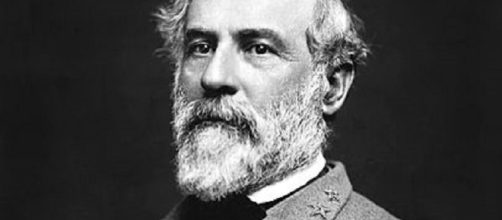Rush Limbaugh recently asked an obviously rhetorical question that has eyebrows raising and people lunging to their keyboards to react with incredulity on social media. “If Robert E. Lee had been proven to be gay, would his statues still be standing?’ Rush, as he tends to do, is being outrageous to expose outrageousness, but the idea seems to be fun enough to examine to chew over.
It all depends on when Lee was uncloseted
It can be safely said that attitudes toward homosexuality in 19th Century America were decidedly unenlightened from the point of view of the present day.
Every state of the Union, as well as the Confederacy, had laws on the books prohibiting the practice, though there are no known instances of prosecutions of consensual gay sex acts before 1880. Homosexuality was a social taboo in a society that was far more religious than modern America, considering the prohibitions in the Book of Leviticus.
If Lee had any tendencies in that area, he would certainly have kept quiet about it. Even in venues in which men dominated, such as a military camp, homosexual encounters would have been furtive and secretive. It would have been, as the cliché stated at the time, the love that dares not speak its name.
The upshot is that had Lee been LGBT and had been outed before the late 20th Century, no statue would have been erected in his memory, and those that existed would have been torn down by the very people who are now defending the monuments from being torn down.
Gay culture in 19th Century America
What we might call “gay culture” saw its first manifestation in New York City in the 1840s. The orientation was often cloaked by poets such as Walt Whitman in the ideal of pure male love and brotherhood. Historians debate whether Whitman was a practicing homosexual or bisexual.
A recent piece in the Huffington Post suggests that gay men did serve in both the Union and Confederate armies and sexual encounters did occur between them and with male prostitutes.
Lee’s attitudes toward homosexuality
Nothing is known specifically about Lee’s attitudes toward homosexuality. It can be surmised, because he was a deeply religious 19th Century man, that he had a dim view of the subject.
Surmising the sexual orientation of anyone in the 19th Century if a not straight heterosexual is a cause for heated arguments. Some historians had maintained that Abraham Lincoln was at least bisexual because he was known to share a bed with a man from time to time when sleeping space was scarce. In any event, the idea of discovering that Robert E. Lee was gay and having that fact override his status as a traitor and fighter for slavery is a low probability event.


